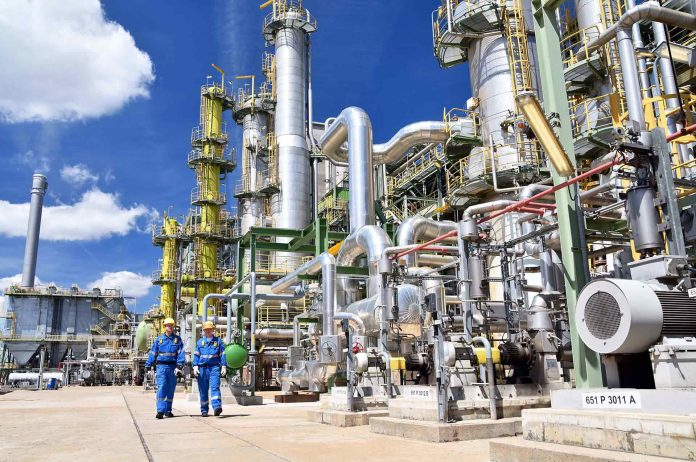One of the most significant industries in the world is the chemical one. This industry must run a lean operation because the chemical supply chain extends from chemical manufacturing through chemical distribution. However, maintaining seamless operations is difficult because there are numerous moving components and stakeholders, such as chemical makers, wholesalers, retailers, and customers.
Kaushik Palicha shared that customers are used to having a wide range of customized options when selecting the goods and services they use. There are many options available for anything from payment method and delivery channel to color, size, and number. This is also where we envision the chemical industry going. However, the intricacy of the global supply chain is a significant problem for chemical firms.
The worldwide supply chain for chemicals has been steadily growing during the previous three decades. Supply chain globalization has created new market opportunities and more opportunities for partnerships and collaboration as a result of a number of factors, including e-commerce, the liberalization of trade agreements, investments in transportation infrastructure, improved methods of international communication, and advancements in transportation technology, among others. However, this expansion has also resulted in more difficulties.
In the last few decades, chemical supply chains have changed and adapted to new digital technology. This trend also applies to artificial intelligence (AI), with chemical companies using AI technologies for inventory management, risk assessment, and mitigation, chemical allocation management, and production optimization. The management of the supply chain is already being transformed by AI.
Artificial intelligence can optimize performance across all levels of the chemical supply chain, increasing profits through more effective procedures while still safeguarding public health and environmental quality. The use of artificial intelligence for supply chain management by chemical suppliers is covered in this article.
AI’s potential to address issues with the chemical supply chain
On the surface, the chemical business today appears to be doing well. Earnings and revenue are increasing. However, pressures that are not as visible are growing. Razor-thin margins, growth in SKUs, globalization, lengthy lead times to increase capacity, and a trend toward products that are bulky and expensive to move are all factors.
You begin to appreciate the challenges of managing an effective chemical supply chain for processes. What are the main supply chain issues facing the chemical sector, and how may they be addressed with cutting-edge AI technologies? What are the most recent developments in the chemical industry’s supply chain? Where do AI solutions work best and offer the most benefit? Nevertheless, without AI advancements, it is challenging for ERPs to keep up with the frequently rapidly changing state of affairs in chemical manufacturing.
According to Kaushik Palicha, Chemical suppliers will be able to optimize planning production schedules, make knowledgeable decisions to address market changes, and provide products that meet customer demand while optimizing performance across all levels of the supply chain through intelligent customization of chemical needs thanks to AI-enhanced chemical supply chain management with advanced analytics.
Lack of Exposure
Lack of insight into their supply chain is one of the main issues that chemical suppliers deal with. Chemical firms may find it difficult to understand the status of their inventory and how it is being used if they just use internal data. It’s crucial for chemical makers to have a clear understanding of what they will have available when their current supply runs out and whether or not there are alternatives that may be used to save costs without compromising quality.
With the help of this information, they can more effectively plan production schedules, reducing inventories as necessary while still satisfying customer demand, enhancing safety by lowering risk exposure, ensuring product consistency with less batch variation, and maximizing performance at all supply chain levels.
The chemical sector can more accurately estimate its stock level and what is required to meet consumer demand with the help of AI technology. Additionally, it can be used to forecast production requirements more accurately, assisting chemical suppliers in maintaining the right amount of safety stock and lowering risk exposure.
Qualitative Assurance Guidelines
To improve their chances of delivering compounds with the desired qualities on schedule and in sufficient quantity, the chemical industry needs a system for managing quality assurance requirements. Establishing a precise definition of what “good” is is difficult. Considerations for this include product attributes like potency (or concentration), color composition, etc.
Nevertheless, there are differences across batches caused by both external variables like raw supplies and failures in the plant’s machinery. Further complicating matters is the fact that chemical manufacturers create their products utilizing a range of different procedures. Chemical firms will be able to accurately define quality assurance criteria by taking into account both internal and external elements thanks to AI-enhanced chemical supply chain management.
On the production line, technologies for picture identification and analysis are utilized to assess the chemical composition and quality of some products. AI will identify different types of occurrences or trends, including equipment failure, early on in anomaly detection systems to stop problems before they start. By doing this, chemical suppliers will be able to achieve their own internal quality standards while still maintaining a high level of client satisfaction.
Conclusions
Kaushik Palicha says with their current processes unable to advance with their digital transformation, the chemical sector faces a number of difficulties that have proven difficult to overcome. With AI’s assistance, there is still an opportunity for progress. Chemical companies can improve manufacturing procedures, boost productivity, lower the likelihood of environmental breaches or fines, find chances to employ recycled chemicals as raw materials when appropriate, and do much more. Make an appointment right away if you’d like to learn more about how AI could help your company’s chemical supply chain operation.














